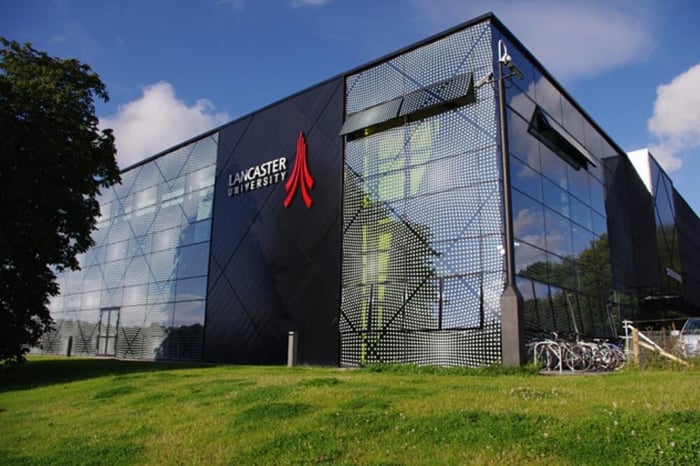
The STARR Interview: Medical School Interview Techniques
Well done for crossing the first hurdle in the application process! With your personal statement done and dusted, you can now focus on the interview. Whether you’ve received an interview invite or you’re waiting to hear, now is the perfect time to start preparing for the interview process if you haven’t already.
Even the most organised amongst us cannot prepare for ALL the questions interviewers might ask, so how can you make it easier for yourself? The trick is not to prepare for each question, but to know two or three structures which enable you to answer the various types of questions that may come your way.
The three main types of questions are opinion based, medical ethics questions and example-based questions. Here, we will be focusing on the later; questions which require you to give one or more examples. Can you think of any such questions?
How about, what did you learn from your work experience? Or tell me about a time you made a mistake? The list goes on, therefore instead of guiding you on how to answer each individual question, we’re going to take you through the STARR technique which will enable you to tackle any example-based question!
THE STARR INTERVIEW TECHNIQUE
The STARR Interview Technique sometimes referred to as the STAR technique (situation, task, action, result), is an interview technique that helps you structure your answers. This technique is helpful in any type of interview. This technique will be beneficial in helping you in your medicine interview and as well as down the road in a job interview. Here we will break down each section of the STARR technique and help you shine in your medicine interviews.
S – SITUATION
You should start your example by setting the scene. What was the context? Think of what, where and when, to help you identify what to include in this section. Some questions that can help you think of the content to include in this section include:
- Where was it?
- Who was involved?
- When was it?
- What was the goal?
- What was the duration of the action?
A common pitfall here is to spend too long describing the situation and not moving onto the next sections. You can avoid this by limiting yourself to 1-2 sentences which succinctly describe the scene. Consider the following example:
Question: ‘Tell me about a time you made a mistake’
- Answer 1: ‘In year eleven, we had biology lessons every Monday morning. For one experiment we got divided into two groups for investigating the importance of water and light in the growth of plants. I was allocated to the group that investigated the importance of water in the growth of plants.’
- Answer 2: ‘In year eleven, whilst conducting a class experiment investigating the importance of water and light for the growth of plants, I was assigned to the group that looked at the variable of water.’
As you can see answer 2 provides enough context to give the interviewer an idea of what the situation was, without waffling.
T - TASK
This section is very straightforward, as the word suggests all you have to do is state what your task was. What were you asked to do? Have a look at the example below, we have now added the task section.

‘In year eleven, whilst conducting a class experiment investigating the importance of water and light in the growth of plants, I was assigned to the group that looked at the variable of water. Our group of five was tasked with watering the plant every other day, we further had to take measurements such as height and weight before watering the plant.’
As you can see, similarly to the situation, you don’t have to spend long on the task section. Just state what your role was and you will have ticked that box!
SECRET R – REASONING
This section is often forgotten in answers, but by including it you make your answer stronger and less superficial. In this section, you have to answer:
- Why you did the action?
- What made you do the action that you will describe later?
- What made you take on that role?
Essentially, here you tell the examiner your thought process. Consider the two examples:
- Answer 1: ‘Our group of five, was tasked with taking measurements such as height and weight and watering the plant every other day. For the first two weeks of the experiment, I was responsible for watering the plants and taking the measurements, ensuring the plants were kept back in the dark cupboard’
- Answer 2: ‘Our group of five, was tasked with taking measurements such as height and weight and watering the plant every other day. Before we started the experiment, I suggested we have a discussion about who would be responsible for watering the plants and gathering the data. As the other members of my group had after-school commitments for the first two weeks of the experiment I volunteered to take on the role.’
Answer 2 shows more understanding and awareness of the situation as well as initiative as opposed to just doing what you were told to do. You provide reasoning for your actions.
A - ACTION
Once again, there is no hidden trick here, all you have to do is what it says on the label – describe your action. For this section focus on your role, and your actions specifically as opposed to the teams. Provide enough detail for the interviewer to understand what exactly you did.
If we take our follow our answer about a time you made a mistake, consider the following example:
'In year eleven, whilst conducting a class experiment investigating the importance of water and light in the growth of plants, I assigned to the group that looked at the variable of water. Our group of five was tasked with taking measurements such as height and weight and watering the plant every other day. Before we started the experiment, I suggested we have a discussion about who would be responsible for watering the plants and gathering the data. As the other members of my group had after-school commitments for the first two weeks of the experiment I volunteered to take on the role. On one occasion, I was running late for the bus and therefore forgot to close the cupboard doors, which meant the plants received light for two days until I returned to take the next set of measurements.'

The final part of that example states the action, in this case, the mistake. Having completed the sections on situation, reasoning, task and action you have done 30% of the work. The most important and essential part of your answer is the results and the reflection, which we will now go through.
R - RESULTS
In this section, you should state what the outcome was of your actions. There are several things you can mention here depending on your example, such as:
- How much money did you raise?
- How many people did you impact?
- Did you achieve your goals?
- Did you get any feedback from mentors/ supervisors/ teachers?
- What the consequences of your actions were?
- What did you learn?
It’s good to give quantitative responses in this section as it shows discrete and concrete achievements. If we go back to our example, when talking about a mistake there aren’t quantitative goals that you can mention, therefore you could mention what your actions were as a result of the mistake. Therefore, your result is what you learnt and what you did to better the situation. Let’s go back to our example:
‘Having realised my mistake, I immediately informed my group and the teacher. Together we decided to re-start the experiment as it had only been a week into the experiment. I acknowledged the negative effect this had to the group’s progress and to ensure I don’t repeat the same mistake I created a checklist which I stuck on the door of the cupboard to ensure I remembered to complete all the tasks.’
R - REFLECTION
The final section of your answer should reflect on experience. There are three main answers that you can use to reflect on the situation. Not all three will apply to your example, therefore pick and choose which one applies to the question and your example!
- Why has your experience made you want to do medicine?
- Through your experience, what have you learnt about the healthcare system or a career in medicine/ being a doctor?
- How will the skills you’ve gained make you a better medical student/doctor?

In our example Question, 3 would be most appropriate to use in order to effectively reflect. Consider the following reflection for the question about a time you made a mistake
SUMMARY
If you find yourself being asked an example question in interviews you have not prepared for, go back to this structure and add an example related to the question. You will be able to give a good response despite not having prepared that specific question!
- S- Situation
- T- Task
- Secret R – Reasoning
- A - Action
- R- Results
- R- Reflection
We hope you have found this blog post helpful. Make sure you practice using this technique to answer the question and don't hesitate to get in touch via [email protected] if you have any questions or would like more advice.



